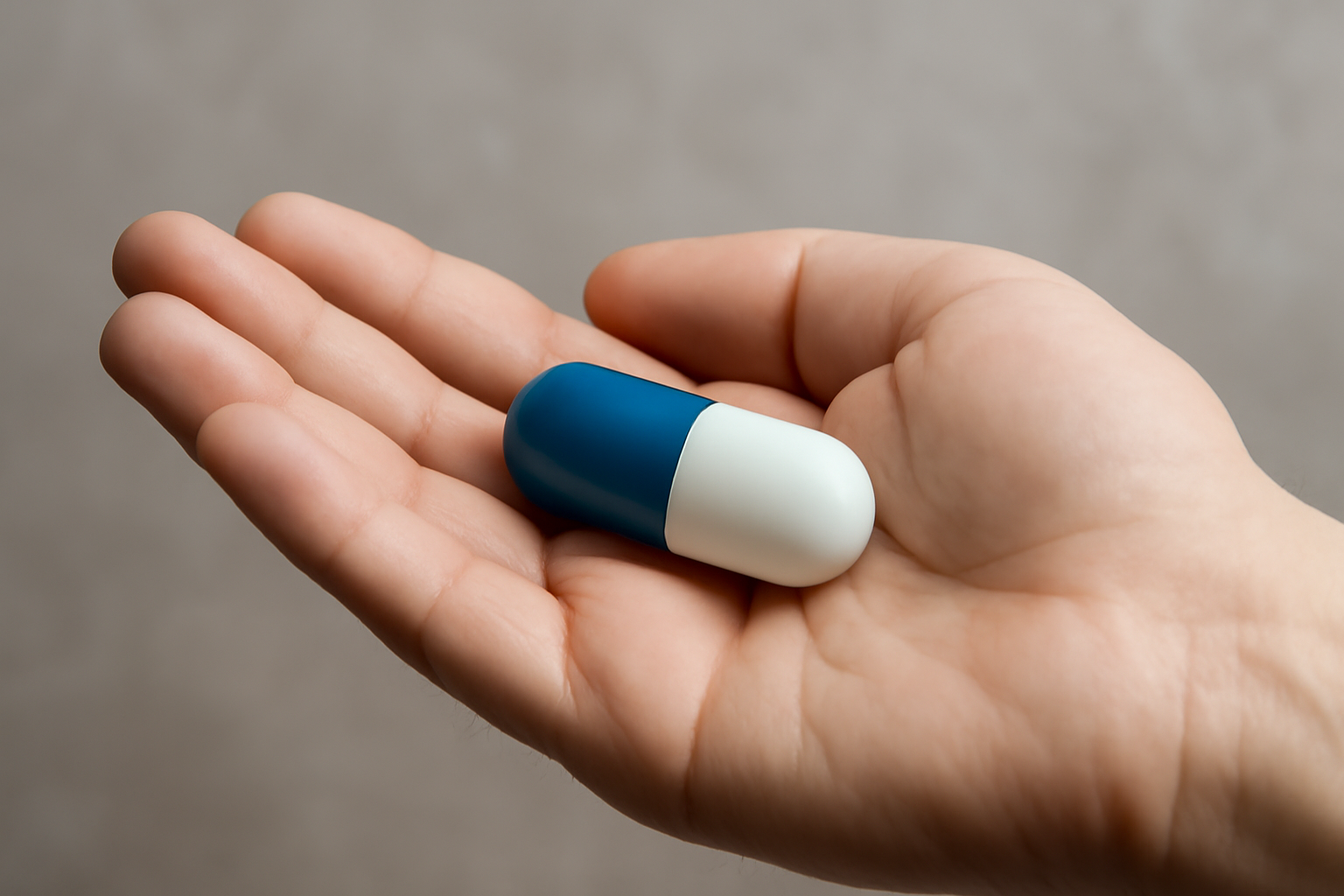Geodon, known generically as ziprasidone, is an antipsychotic medication used in the treatment of certain mental health conditions. It belongs to the class of second-generation (atypical) antipsychotics and can play a stabilizing role in managing symptoms such as delusions, agitation, and mood disturbance. Like all psychiatric medications, Geodon is most effective when used as part of a broader treatment plan that may include psychotherapy, support services, and lifestyle strategies. Information provided here is educational and should be discussed with a healthcare professional before starting, stopping, or changing any treatment.
How Geodon works (mechanism of action)

Ziprasidone works primarily by blocking dopamine D2 receptors and serotonin 5-HT2A receptors in the brain. This dual receptor antagonism is thought to help reduce psychotic symptoms while also contributing to mood stabilization. The drug also interacts with other receptors in ways that can influence blood pressure and movement-related side effects. Compared with some older antipsychotics, ziprasidone generally carries a lower risk of long-term weight gain and metabolic changes for many patients, although individual responses vary and monitoring remains important.
Common uses and conditions treated
Geodon is approved for the treatment of schizophrenia in adults and for acute manic or mixed episodes in bipolar I disorder in adults. It may be prescribed as part of a comprehensive treatment plan for bipolar disorder with psychotic features or other conditions where symptoms reflect dysregulated thought or mood. The choice to use ziprasidone depends on the symptom profile, prior response to treatment, and weighing benefits against potential side effects. It is not universally suitable for every patient, and clinicians tailor therapy to each person’s needs.
Typical dosages and administration
Dosages are individualized and should be guided by a clinician. For adults with schizophrenia or acute manic/mixed episodes of bipolar I disorder, the usual starting dose is 20 mg twice daily with meals. The dose can be gradually increased to a target range of 40-80 mg twice daily, depending on response and tolerability. A critical administration detail is that Geodon should be taken with food, ideally a meal containing about 500 calories or more, to ensure proper absorption and effectiveness. Doses should not be taken without food, as absorption can be significantly reduced.
Key dosing points to discuss with your clinician include:
- Starting dose: typically 20 mg twice daily with meals
- Target dose range: commonly 40-80 mg twice daily
- Maximum recommended dose: generally up to 80 mg twice daily
- Pediatric dosing: determined on a case-by-case basis by a pediatric specialist
- Missed doses: follow clinician guidance rather than doubling the next dose
Side effects and monitoring considerations
All medicines have the potential for side effects. Common early effects of ziprasidone can include drowsiness, dizziness, restlessness, and nausea. Some people may experience dry mouth, constipation, or skin reactions. Movement-related side effects (extrapyramidal symptoms or EPS) can occur but are typically less pronounced than with some older antipsychotics. Weight gain and metabolic changes are generally less pronounced than with several other antipsychotics, but they can still occur in some patients.
A notable safety consideration with ziprasidone is the potential for QT interval prolongation on an electrocardiogram (ECG), which can increase the risk of certain heart rhythm problems in people with electrolyte abnormalities, existing heart conditions, or those using other QT-prolonging medications. Baseline ECGs and periodic monitoring may be recommended for individuals at higher risk. If you notice symptoms such as fainting, palpitations, severe dizziness, or chest discomfort, seek medical attention promptly.
Monitoring strategies often include:
- Regular assessment of heart rhythm, especially for those with risk factors
- Periodic checks of electrolytes (potassium and magnesium)
- Monitoring weight, blood sugar, and lipids as part of overall metabolic health
- Evaluation of movement symptoms and overall mental health response
Interactions with other medications
Ziprasidone can interact with several kinds of medicines. Because it can affect heart rhythm, combining it with other QT-prolonging drugs raises the risk of abnormal heart rhythms. This includes certain antiarrhythmics, antibiotics (like some macrolides and fluoroquinolones), antidepressants, and antiemetics. It is important to tell your clinician about all medicines you take, including over-the-counter drugs and supplements.
As a substrate of the CYP3A4 enzyme family, ziprasidone levels can be influenced by drugs that inhibit or induce these enzymes. Inhibitors may raise ziprasidone levels, while inducers may lower them, potentially affecting effectiveness or side effects. In addition, combining ziprasidone with other central nervous system depressants (for example, alcohol or certain sedatives) can increase drowsiness or sedation, which may impair daily activities such as driving.
If you are starting or stopping any medication, including herbal or over-the-counter products, discuss potential interactions with your healthcare provider. A pharmacist can help review the full medication list for safety.
Important considerations for patients
Before starting Geodon, discuss your full medical history with your clinician, including heart problems, electrolyte imbalances, seizure history, liver or kidney disease, diabetes, or a history of drug sensitivity. Because of the QT prolongation risk, you may undergo baseline ECG testing and periodic monitoring if your clinician deems it necessary, especially if you have risk factors or are taking other QT-prolonging drugs.
Practical considerations include taking Geodon with a meal for proper absorption, as noted above. If you miss a dose, consult your clinician rather than taking extra large doses later. Do not abruptly discontinue Geodon without medical guidance, as stopping antipsychotic treatment suddenly can lead to relapse of symptoms or withdrawal-like effects.
While Metabolic effects vary between individuals, ongoing monitoring of weight, fasting glucose, and lipid levels is generally advised, particularly if you have preexisting risk factors for metabolic syndrome. Engaging in a balanced diet, regular physical activity, and good sleep hygiene can support overall treatment outcomes and reduce the risk of metabolic changes.
Pregnancy and breastfeeding should be discussed with a clinician, weighing potential benefits to the mother against potential risks to the fetus or infant. The decision to use Geodon during pregnancy or while breastfeeding requires careful medical judgment.
Common-sense safety tips include proper storage of the medication, keeping it out of reach of children, and adhering to prescribed instructions. For additional patient-friendly information, you can consult reputable online resources such as the MedlinePlus Ziprasidone information and the Drugs.com ziprasidone page. MedlinePlus ziprasidone information: https://medlineplus.gov/druginfo/meds/a699037.html?utm_source=lumair.ai. Drugs.com ziprasidone page: https://www.drugs.com/ziprasidone.html?utm_source=lumair.ai.
⚠️ This content is for informational purposes only and is not a substitute for professional medical advice, diagnosis, or treatment. Always consult a licensed physician, psychiatrist, psychologist, or other qualified healthcare professional before making decisions about medications, mental health treatment, or alternative and holistic treatment.

